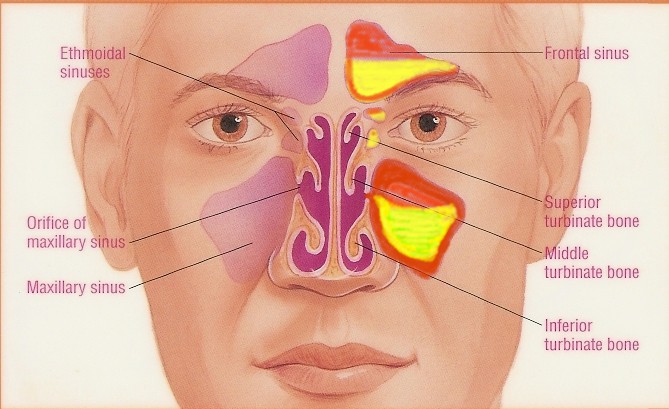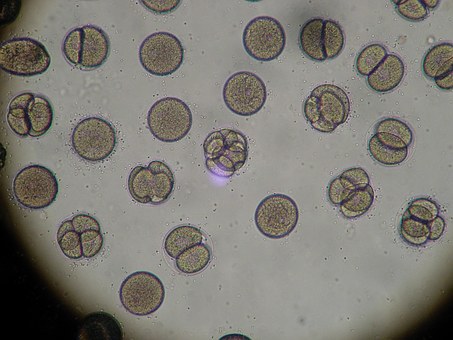Diagnosing Chronic Sinusitis
What Causes Chronic Sinusitis?
One other item needs to be discussed when talking about chronic sinusitis which is adequate drainage. If there is an obstruction which impedes drainage secretions accumulate. This accumulation inhibits the natural mechanisms of the sinuses to clear pathogens that now have the potential to cause bacterial infections. Therefore surgery along with the medical management of the above mentioned risk factors is important helping patients who suffer with chronic rhinosinusitis (CRS). Allergic rhinitis (AR) is one of the most common illnesses associated with CRS.
Allergens enter the sinuses through the nasal passages and set off a cascade of inflammatory reactions which damages the mucosa, bacteria that normally colonizes the sinus cavities are now able the penetrate beneath the mucosal layer, which when intact is an excellent barrier against bacterial infections. Allergy testing allows the clinician to identify offending allergens to the individual patient and subsequent allergy immunotherapy helps the patient to minimize the effects of the allergens. This is accomplished by having the patient develop tolerance to the allergen by introducing increasing concentrations of the allergen over a period of time.
Contributing Risk Factors to Chronic Sinusitis
A special subset of allergic rhinitis is Allergic Fungal Sinusitis (AFS). Though it shares many of the same traits as allergic rhinitis there are some distinct differences. One of the most significant is that most patients do not have a positive skin test to molds which are ubiquitous to the environment. However, like other allergens AFS causing inflammatory damage to the mucosal lining of the sinuses and causes secondary bacterial infections. In a recent article from the American Journal of Rhinology and Allergy it describes that symptoms of patient with AFS can range from mild to severe and depending on the severity of the disease will dictate the appropriate way to manage the disease.
GERD and Chronic Sinus Infections
Gastro-Esophageal Reflux Disease or (GERD) is a major contributor to chronic sinusitis. If the Lower Esophageal Sphincter (LES) doesn’t function properly gastric secretions are able to travel back up the esophagus and damage structures such as the vocal cords, bronchioles and sinus cavities. Just as it is with AR and AFS the disruption of the mucosal integrity of the sinus cavity leads to bacterial infections. In many cases bacteria associated with gastrointestinal tract are found in the sinus cavities making it highly suggestive that the underlying cause for the patient’s CRS is reflux in origin. Treating the underlying reflux helps avoid the recurrent use of antibiotics.
CVID and Chronic Sinusitis
Another risk factor for chronic sinusitis is immunological disorders which can be both inherent and acquired. One such inherent disorder is Common Variable Immunodeficiency which can present in childhood. However, in many instances, the full expression of the disease may not be recognized until the third or fourth decade of life. Unfortunately, CVID is not well-recognized and in many instances undiagnosed until later on in life. Lately, our practice has identified several patients that developed immunodeficiencies after chemotherapy for treatment of an underlying malignancy. Treating CVID with gamma globulin therapy greatly reduces the incidence of sinus infections in those that have this underlying problem.
Wrapping Up Chronic Sinusitis Causes and Diagnosis
In conclusion, it takes experienced clinicians who understand how multiple disease processes can collectively cause CRS and identify the underlying risk factors in each individual patient. Thereby customizing a treatment plan that is based on the patient and not on some standardized protocol.







